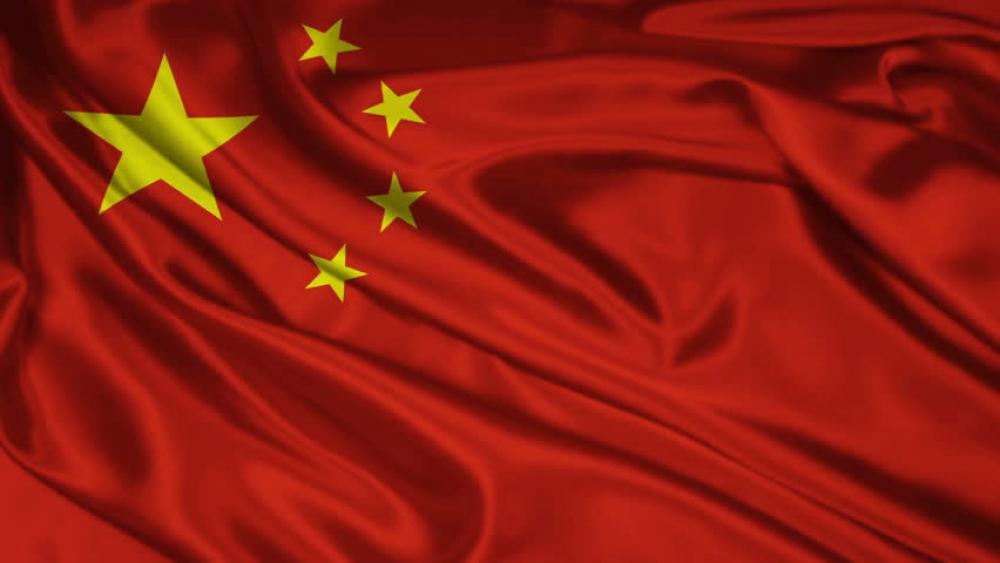Just Earth News | @justearthnews | 01 May 2023

Image: Free Wallpaper/World Uyghur Congress
Forced organ harvesting in China has come to the limelight again as the US is bringing in a law that would impose sanctions and penalties on the individuals involved in these activities.
China has been reported to have a thriving black market for organ harvesting, in which poor people, prisoners, religious minorities, activists are allegedly the victims. Some even have come up with evidence about the involvement of the China Communist Party (CCP) in forced organ harvesting activities.
While Beijing has officially refuted the allegations and claimed that organ harvesting was banned in 2015, several investigations and news reports suggest that forced organ harvesting is still rampant in China.
Two researchers-- Matthew P. Robertson from Australia and Jacob Lavee from Israel- - found in their investigations that China's security and judicial systems were involved in organ removal from live persons. They carried out computational text analysis of 2,838 papers drawn from a dataset of 124,770 Chinese- language transplant publications.
In a journal named ‘Execution by organ procurement: Breaching the dead donor rule in China’, they wrote: "Chinese governmental accounts of its organ transplantation sector are often contradictory, and the state has published confusing and demonstrably manipulated data sets to the international community.”
These researchers also revealed that the prisoners were alive when their organs were harvested. Former Chinese surgeon Enver Tohti Bughda, who extracted organs from prisoners, disclosed that physicians were forced by the Chinese authorities to remove organs from the live prisoners.
He said the Beijing government had made the database of 17 million Uyghurs since the organ business would need to have plenty in availability.
{image_1}
A Uyghur detention camp in China. Image courtesy World Uyghur Congress
“Unlimited supply of organs only can be achieved if those organs are carried in the living bodies waiting to be taken on demand. News broke out that the CCP is giving Uyghur people in Xinjiang free national health check-ups. With no further explanation, we suspect that the CCP is building their national database for organ trade,” he said.
It is reported that China began harvesting organs from executed Chinese prisoners in the 1970s. Later in the 1990s, the CCP government started harvesting the organs of members of a spiritual group named Falun Gong, terming them as a threat to national security. Minority Muslims from Xinjiang, Uyghurs, are the latest targets. China always rejected the claims of forced organ harvesting, and it announced that organ removal from executed prisoners would be stopped in 2015. However, investigations showed things are still as they were earlier.
Over 1.5 million detainees in Chinese prison camps are at risk of the illegal and unethical harvest of their organs.4 China Tribunal, an international body set up to investigate allegations of forced organ harvesting, reached the conclusion that these inhuman activities are still being carried out throughout China on a significant scale.
"The Tribunal's members are certain - unanimously, and sure beyond a reasonable doubt - that in China forced organ harvesting from prisoners of conscience has been practiced for a substantial period of time involving a very substantial number of victims,” the tribunal said in its interim judgement.
China faces allegations of genocide in Xinjiang, where Uyghur Muslims are subjected to forced disappearances, imprisonment, and inhuman treatment. It is feared that the organs of live Uyghur Muslims are sold to wealthy Chinese and foreigners.
Chinese authorities carried out medical examinations of over 15 million Uyghur Muslims as they wanted to prepare a database of matches for organ transplants. Researcher Ethan Gutmann claimed Chinese authorities killed at least 25,000 in Xinjiang to remove and sell their organs. Gutmann said China tried to create “a policy of ethnic cleansing – a potentially very profitable one.”
Different investigations by international researchers have made sensational claims about the involvement of the People’s Republic of China in forced organ harvesting. Roberston and Lavee brought attention to the easy availability of organs in China. “PRC hospitals continue to advertise transplant waiting times of weeks, whereas wait times in the United States are measured in months and years. Hospitals continue to advertise organs to transplant tourists with websites in English, Russian, and Arabic,” they said.
The United Nations has said it was extremely alarmed by the reports of alleged ‘organ harvesting’ targeting minorities in China.